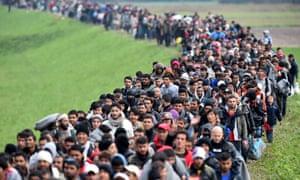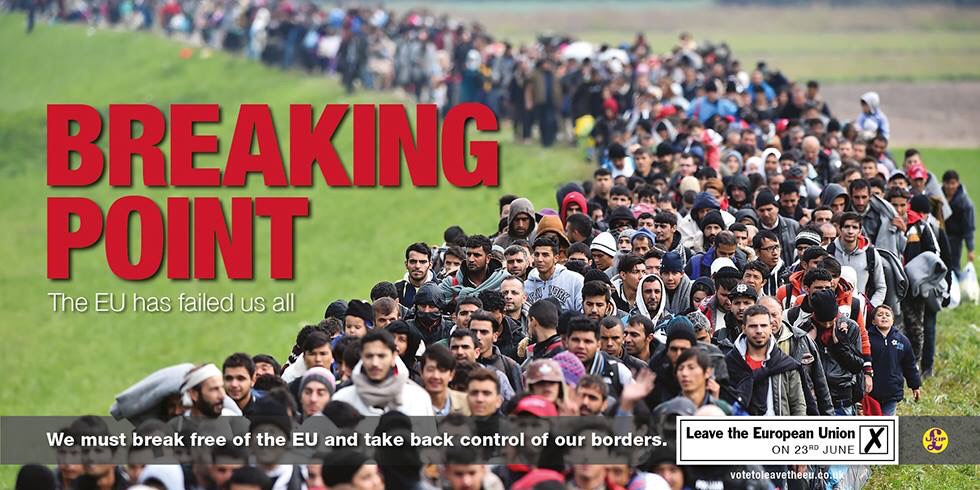Jeff Mitchell's image of refugees waiting to cross the border from Croatia into Slovenia speaks of the misery that the conflicts in the Arab world have created. They appear to be patient people,mostly male.

https://www.theguardian.com/artanddesign/2016/jun/22/jeff-mitchells-best-shot-the-column-of-marching-refugees-used-in-ukips-brexit-campaign
retrieved 23/10/16
It became this during the UK Referendum campaign by UKIP, a British political party of the right of politics to leave the EU of 2016

https://politicaladvertising.co.uk/2016/06/20/breaking-point/ retrieved 23/10/16
Ukip were trying to play to the fears of the white working class and the retired that all of these people would be getting on the next train to St Pancras and over running the UK. You might notice if you compare the copies of this photograph that the box which says "Leave the European Union" is covering up the only ostensibly white person in the photograph. Blatant racism and xenophobia.
Jeff Mitchell was understandably upset by the use of his image in this way, but he had sold it and the rights to it to Getty Images who had licenced it's use in this campaign.
It is arguable that picture libraries and archives should investigate a bit more thouroughly to what use images they lease will be put, buit there is also, I think an argument for a change in the way photographers sell their images to photobanks.
In this case a perfectly legitimate image of the effects of sustained warfare on humanity was changed into an obscene xenophobic, racist image for the purposes of political scaremongering.
With technology becoming ever more prevalent, and the internet becoming more of a staple in our lives than a luxury, as it was previously, I think the time has come for some kind of conversation regarding the licensing of images, especially in a world where there are such religious and racial tensions and ongoing wars.
We as photographers have a moral duty to show things "As they are", but that deuty swings both ways as far as the organisations we sell or lease our images to. They also have a duty to ensure that images are not used to incite hatred of any kind.
No comments:
Post a Comment